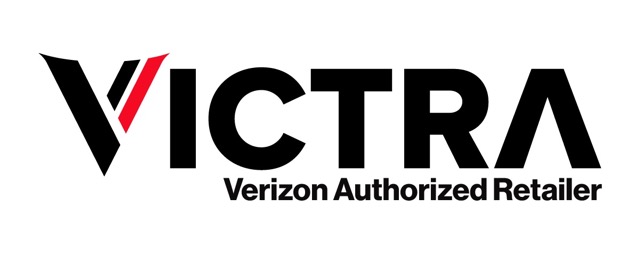Does Verizon Do Credit Checks? Everything You Need to Know
Table of Contents
In the telecom industry, understanding credit checks is important for people getting new Verizon service or upgrading their account. If you need a personal plan or communication solutions for your business, a credit check is necessary. The credit check is an important step in the process.
Why Credit Checks Matter
Credit checks serve as a means for Verizon to assess the financial reliability of potential and existing customers. By evaluating an individual’s or business’s credit history, Verizon can determine the level of risk associated with providing services or extending credit. This process helps Verizon safeguard its business interests while ensuring a fair and responsible approach to customer relationships.
Navigating the Telecom Landscape
The telecom industry is changing fast, giving consumers many choices for service providers. However, each provider may have distinct policies and procedures regarding credit checks. Knowing how Verizon does credit checks helps people make better choices when picking services that fit their needs and budget.
Transparency and Accountability
Verizon reflects its commitment to transparency and accountability in its credit check process. Verizon wants its customers to trust and feel confident by explaining the steps and factors they use. This transparency not only promotes a positive customer experience but also encourages responsible financial behavior.
Empowering Consumers
Knowledge is power, especially in the realm of personal finance and telecommunications. By providing comprehensive information about its credit check process, Verizon empowers consumers to take control of their financial destiny. Consumers can learn how credit checks affect credit scores and improve their creditworthiness. By making informed choices, they can set themselves up for a better financial future.
What is a Credit Check?
A credit check is when companies like Verizon check if people or businesses are financially trustworthy. It means looking at an applicant’s credit history, including past borrowing, debts, and payment history to make a decision.
Understanding Credit History
Credit history serves as a comprehensive record of an individual’s or business’s financial activities, providing insights into their creditworthiness. Credit bureaus compile this history based on data provided by creditors and other sources. It encompasses various aspects, including credit card usage, loan repayments, and any instances of bankruptcy or foreclosure.
Assessing Creditworthiness
Lenders conduct credit checks to assess if someone can manage credit responsibly and make timely bill payments. It helps lenders decide if they should approve a loan or credit card application. Companies such as Verizon use credit reports to evaluate the risk of offering services or credit to applicants. They make this assessment based on the information found in the report.
Factors Considered
During a credit check, lenders consider several factors to evaluate the creditworthiness of an individual or business. Several factors can impact your financial situation. Things like credit score, payment history, debt, credit history length, and late payments impact your finances.
Importance in Financial Transactions
Credit checks play a vital role in various financial transactions, including obtaining loans, credit cards, and utility services. Companies such as Verizon use credit checks to minimize the chances of customers not paying their bills. Credit checks also help ensure that services are provided to customers who are more likely to pay their bills on time. The company does this to protect itself from financial losses and maintain a positive cash flow.
Protecting Business Interests
From a company’s perspective, conducting credit checks is essential for protecting their business interests. Companies can make smart decisions about giving credit or services by checking if applicants can pay back. This helps avoid losing money from people who don’t pay.
Why Does Verizon Do Credit Checks?
Verizon and other telecom companies do credit checks to manage risk and ensure responsible business practices. One primary reason is to assess the likelihood of customers fulfilling their financial obligations, including paying their bills on time. By evaluating an individual’s or business’s credit history, Verizon can gauge their creditworthiness and make informed decisions regarding service provision and credit extension.
Risk Management
Credit checks help Verizon manage risk by reducing financial losses from customers who don’t pay their bills on time. Verizon can confidently offer services to applicants with good credit. These applicants are more likely to pay on time and follow contract agreements.
Preventing Fraud and Identity Theft
In addition to assessing creditworthiness, credit checks also help Verizon mitigate the risk of fraud and identity theft. Verizon checks applicants’ credit reports to make sure they are legitimate and can afford the services they are applying for.
Maintaining Financial Stability
For Verizon to operate efficiently and sustainably, it’s essential to maintain a stable financial environment. Conducting credit checks allows Verizon to make prudent decisions about extending credit and providing services, thereby safeguarding its financial stability and long-term viability.
Compliance with Regulations
Furthermore, performing credit checks aligns with regulatory requirements and industry standards governing telecommunications companies. These regulations often mandate certain practices to protect consumers’ financial interests and ensure fair and equitable treatment.
Enhancing Customer Experience
While credit checks are primarily conducted to protect Verizon’s interests, they can also benefit customers by promoting responsible financial behavior and ensuring the integrity of the services provided. By maintaining a customer base comprised of individuals and businesses with strong credit profiles, Verizon can deliver a more reliable and sustainable service experience for all its customers.
Verizon’s Credit Check Process for New Customers
For new customers looking to sign up for Verizon services, understanding the credit check process is essential. Verizon’s credit check process for new customers typically begins when an individual or business applies for a new service plan, such as a mobile phone contract or internet package. During the application process, Verizon will request permission to perform a credit check to assess the applicant’s creditworthiness.
Information Collection
To conduct a credit check, Verizon will gather pertinent information from the applicant, including personal details such as name, address, social security number (or Taxpayer Identification Number for businesses), and contact information. This information is used to access the applicant’s credit report from one or more major credit bureaus, such as Equifax, Experian, or TransUnion.
Credit Report Evaluation
Once the credit report is obtained, Verizon’s system will analyze the information contained within it to determine the applicant’s creditworthiness. Key factors considered during this evaluation include the applicant’s credit score, payment history, outstanding debts, and any derogatory marks such as late payments or bankruptcies.
Decision Making
Based on the information gleaned from the credit report, Verizon will make a decision regarding the applicant’s eligibility for the desired service plan. Applicants with strong credit profiles may be approved for service without additional requirements, while those with less favorable credit histories may be subject to additional conditions, such as a security deposit or a cosigner.
Notification and Account Setup
Once a decision is reached, Verizon will notify the applicant of the outcome and provide instructions for setting up their new account if approved. This may include selecting a service plan, choosing equipment such as phones or routers, and arranging for payment methods and billing preferences.
Customer Support and Assistance
Throughout the credit check process, Verizon’s customer support team is available to assist applicants with any questions or concerns they may have. Whether it’s clarifying the information required for the credit check or providing guidance on alternative options for those with less-than-perfect credit, Verizon strives to ensure a smooth and transparent experience for new customers.
Verizon’s Credit Check Process for Existing Customers
Even for existing customers making changes to their Verizon accounts, such as upgrading to a new phone or switching to a different service plan, the credit check process may come into play. While existing customers may have already undergone a credit check when initially signing up for service, certain account modifications or upgrades may trigger another assessment of creditworthiness.
Account Modification Requests
When an existing Verizon customer submits a request to modify their account, such as upgrading to a new device or changing their service plan, Verizon may review the customer’s credit history as part of the approval process. This is particularly common for requests that involve additional financial commitments, such as installment plans for new devices or higher-tier service plans.
Credit Check Triggers
Various factors may trigger a credit check for existing customers, including the specific changes requested, the customer’s payment history, and the duration of their relationship with Verizon. While not all account modifications require a credit check, Verizon may choose to conduct one to ensure that the customer’s creditworthiness aligns with the requested changes.
Credit Check Process
For existing customers undergoing a credit check, the process is similar to that of new customers. Verizon will collect relevant information from the customer, such as personal details and consent to access their credit report. The credit report is then evaluated to assess the customer’s creditworthiness and determine whether the requested account modifications can be approved.
Notification and Account Updates
Upon completion of the credit check process, Verizon will notify the customer of the outcome and provide instructions for proceeding with the requested account modifications. If approved, the customer may proceed with the changes as planned. In cases where additional conditions are required, such as a deposit or a cosigner, Verizon will provide guidance on next steps.
Customer Support and Assistance
Throughout the credit check process for existing customers, Verizon’s customer support team remains available to address any questions or concerns that may arise. Whether it’s clarifying the reason for the credit check, explaining the outcome of the evaluation, or assisting with alternative options, Verizon strives to ensure a positive and transparent experience for its existing customers.
Understanding the Impact of Credit Checks
Credit checks can have significant implications for individuals and businesses, extending beyond the immediate approval or denial of a service application. One of the most notable impacts of credit checks is on an individual’s credit score. Each time a credit check is performed, it leaves a “hard inquiry” on the credit report, which can temporarily lower the credit score by a few points. While a single hard inquiry typically has a minor effect, multiple inquiries within a short period can compound the impact on the credit score.
Credit Score Considerations
The credit score plays a crucial role in various aspects of personal and financial life. It not only influences the likelihood of approval for credit cards, loans, and mortgages but also affects the terms and interest rates associated with these financial products. Therefore, individuals should be mindful of the potential impact of credit checks on their credit scores and exercise caution when applying for new credit or services.
Long-Term Credit History
Additionally, credit checks contribute to the long-term credit history maintained by credit bureaus. While hard inquiries remain on the credit report for a limited time (typically two years), they provide a comprehensive record of an individual’s or business’s credit-seeking activities. Lenders and service providers may consider the frequency and timing of credit inquiries when evaluating creditworthiness, as excessive inquiries may raise concerns about financial stability or risk tolerance.
Creditworthiness and Financial Opportunities
Maintaining a positive credit history is essential for accessing financial opportunities and securing favorable terms on credit products. Therefore, individuals and businesses should strive to manage credit responsibly, minimizing the number of unnecessary credit inquiries and ensuring timely payments on existing credit accounts. By demonstrating consistent financial behavior, individuals can enhance their creditworthiness and improve their access to future financial opportunities.
Protecting Credit Health
Understanding the impact of credit checks is crucial for protecting overall credit health and financial well-being. While credit checks are a standard practice in various financial transactions, individuals can take proactive steps to mitigate their impact on credit scores and long-term credit history. This includes limiting the number of credit applications, monitoring credit reports for inaccuracies or unauthorized inquiries, and maintaining responsible financial habits.
Tips for Improving Credit Scores
Improving credit scores is a worthwhile endeavor for individuals and businesses alike, as it can lead to greater access to financial opportunities and more favorable terms on credit products. Here are some effective tips for enhancing credit scores:
- Monitor Credit Reports Regularly: Regularly monitoring credit reports allows individuals and businesses to stay informed about their credit status and identify any errors or discrepancies that may impact their scores. By reviewing credit reports from all three major credit bureaus—Equifax, Experian, and TransUnion—consumers can ensure the accuracy of their credit information.
- Pay Bills on Time: One of the most significant factors influencing credit scores is payment history. Making timely payments on credit accounts, loans, and bills demonstrates responsible financial behavior and positively impacts credit scores. Setting up automatic payments or reminders can help ensure payments are made on time consistently.
- Reduce Credit Card Balances: High credit card balances relative to credit limits can negatively affect credit scores. Paying down credit card balances and keeping them low compared to credit limits can improve credit utilization ratios and boost credit scores. Aim to keep credit card balances below 30% of available credit.
- Limit New Credit Applications: Each credit application results in a hard inquiry on the credit report, which can temporarily lower credit scores. Therefore, individuals should limit unnecessary credit applications and only apply for credit when necessary. Focusing on quality over quantity when it comes to credit applications can help maintain credit health.
- Diversify Credit Mix: Having a diverse mix of credit accounts, such as credit cards, installment loans, and mortgages, can positively impact credit scores. Lenders may view individuals with a mix of credit types as more creditworthy. However, it’s essential to manage credit accounts responsibly and avoid taking on more debt than necessary.
- Keep Accounts Open: Closing old or inactive credit accounts can shorten credit history and reduce the average age of accounts, which may negatively impact credit scores. Unless there are compelling reasons to close accounts, such as high fees or misuse, consider keeping them open to maintain a longer credit history and improve credit scores.
- Use Credit Wisely: Ultimately, using credit wisely and responsibly is key to improving and maintaining healthy credit scores. This includes avoiding maxing out credit cards, paying more than the minimum amount due each month, and refraining from applying for credit impulsively. By adopting smart credit habits, individuals and businesses can strengthen their financial profiles and achieve their long-term financial goals.
Conclusion
In conclusion, understanding the intricacies of credit checks and their impact on financial health is essential for individuals and businesses alike. Whether applying for new services with Verizon or engaging in other financial transactions, being aware of the factors that influence creditworthiness can help individuals make informed decisions and navigate the credit landscape effectively.
Empowering Financial Literacy
By familiarizing themselves with the credit check process and implementing strategies to improve credit scores, individuals can take proactive steps to enhance their financial well-being. From monitoring credit reports regularly to practicing responsible credit management, there are various ways to protect and improve credit health.
Building Strong Credit Profiles
Building and maintaining strong credit profiles not only opens doors to financial opportunities but also provides a solid foundation for achieving long-term financial goals. By adhering to sound financial practices and prioritizing credit health, individuals and businesses can position themselves for success in today’s dynamic economic environment.
Continuous Learning and Adaptation
The journey to financial empowerment is ongoing, requiring continuous learning and adaptation to changing circumstances and market conditions. By staying informed about developments in the financial industry and seeking guidance from trusted sources, individuals and businesses can navigate challenges and seize opportunities with confidence and resilience.
Community Support and Resources
Finally, leveraging community support and resources can further bolster efforts to improve credit health and achieve financial stability. Whether through financial education programs, credit counseling services, or peer-to-peer support networks, individuals and businesses can benefit from the collective wisdom and experience of others on similar journeys.
Striving for Financial Freedom
Ultimately, the goal of understanding credit checks and credit management is to empower individuals and businesses to achieve financial freedom and security. By taking proactive steps to build and maintain healthy credit profiles, individuals and businesses can pave the way for a brighter financial future and unlock opportunities for growth and prosperity.
is a skilled Web Developer and Designer. He builds and designs websites that focus on best UI/UX practices. Justin is also a Verizon Product Expert at Victra, helping customers with Verizon products and services. His mix of design, coding, product, and general knowledge makes him a valuable and knowledgeable team member.





